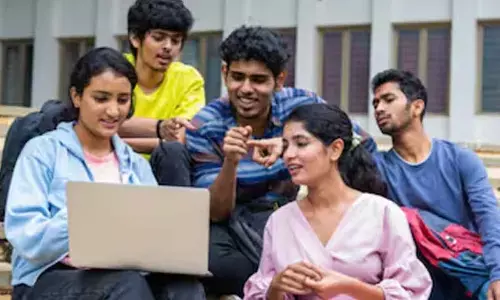Azad scheme for adolescents

Azad scheme for adolescents, Rashtriya Kishor Swasthya Karyakram, Azad scheme. Azad said that the 5 by 5 RMNCH+A matrix had been developed, which lists out the 5 high impact interventions under each of the 5 pillars.
- Health care programme RKSK launched for the young
- Programme to cover 243 mn adolescents across the country
- To move away from doctor-driven effort to a holistic participative programme
- Focuses on lifestyle and behavior-related diseases
New Delhi: Union Health Minister Ghulam Nabi Azad on Tuesday launched the Rashtriya Kishor Swasthya Karyakram (RKSK), which focuses on the healthcare of adolescents. It introduces community-based interventions through peer educators and is underpinned by collaborations with other ministries and state governments, knowledge partners and research organizations. It will bring in several new dimensions, which he listed as – mental health, nutrition, substance misuse, gender-based violence and non-communicable diseases. Besides, Azad inaugurated the three-day National Adolescent Health Consultation.
Present at the launch function were UNFPA Deputy Executive Director Kate Gilmore, UNFPA representative for Bhutan and India Fredika Meijer, senior officers from the Ministry of Health, health secretaries from different states, and representatives from the UNICEF.
Addressing the gathering, Azad stated that the programme would comprehensively address the health needs of the 243 million adolescents, who account for over 21 per cent of the country’s population. So far the efforts had been partial, confined to sexual and reproductive health, that, too, at select government facilities, he said. Referring to the strategic approach to RMNCH+A (Reproductive, Maternal, New-born, Child Health + Adolescent) in which A denotes adolescents, unveiled last year at Mahabalipuram, the Health Minister said that new focus on adolescents was in recognition of the fact that without adolescent health, maternal and child health outcomes might continue to elude.
Azad said that the 5 by 5 RMNCH+A matrix had been developed, which lists out the 5 high impact interventions under each of the 5 pillars. All these needed to be implemented together, at the same time, with high coverage and quality, he said.
Health secretary K Desi Raju said that the programme was an effort to move away from a doctor-driven effort towards a holistic and participative programme. The RKSK recognises that all adolescents need attention even before the occurrence of any disease or problem, and in order to make informed decisions and choices. Additional Secretary Anuradha Gupta stated that adolescents present a unique opportunity to reap the country’s demographic dividends. Highlighting the salient features of the programme and the need for an enhanced and sharper focus on adolescents, she pointed out it would not be possible without investing in their health needs.
She explained that lifestyle and behavior-related diseases such as substance-abuse, inflicting self-harm, tendency towards gender-based violence, low nutrition and physical inactivity, which begin and occur more during this phase, were fast becoming the causes for the highest mortality in this age group. She stated that in the coming years in the developing countries, seven out of ten deaths would be due to non-communicable diseases. The RKSK programme defines an adolescent as a person within 10-19 years of age, in urban and rural areas, includes both girls and boys, married and unmarried, poor and affluent, whether they are in school or out of school. This broad definition would help address the myriad problems of adolescents across various groups and categories, she stated.
The programme emphasis was on six Cs – coverage, content, communication, counselling, clinics and convergence.
She stated that active use of new technologies and social media platforms would form an integral part of the programme to reach the adolescents in their own spaces, with strategic partnerships with communities and peers.
Azad launched the handbooks on strategy frameworks, which includes the framework for monitoring, supervision and evaluation of the programme once it is rolled out; the handbook on operational framework, which will help translate the programme into action; and the resource pack for the ANMs, ASHAs, medical officers and the peer educators.

















